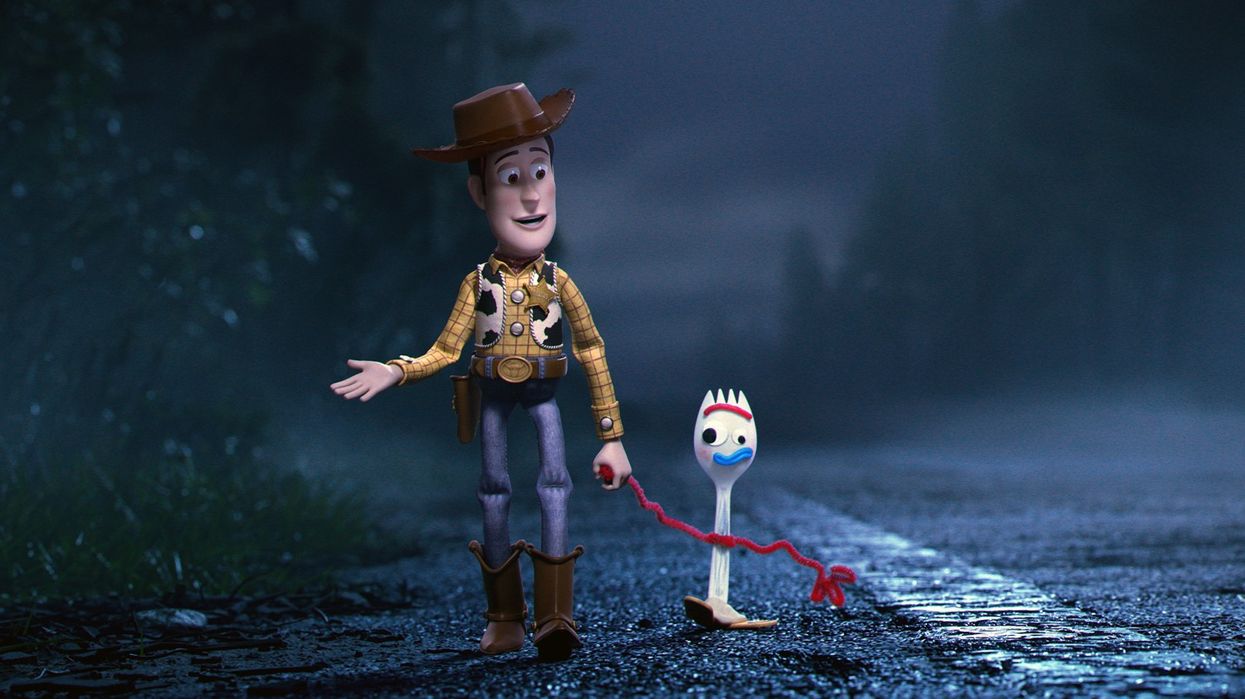Pixar's Recipe for Really, Really Good Storytelling
How do the storytelling masters over at Pixar craft a story?

Pixar has not only made dozens of films to delight and entertain audiences but they've also become the spiritual champions of good storytelling, sharing their recipes and educating aspiring writers on how to put each ingredient together.
If you're a Pixar fan and also a screenwriter, chances are you're very familiar with their most famous cookbook, 22 Rules of Storytelling. (If you're not, stop reading this and go read that...and then come back and read this because it's important.)
While every single one of those 22 "rules" has an important role to play in making a story great, this video from Insider condenses that list into 5 of the most important ones to follow if you want to write a great screenplay.
Now, let's go over each one and figure out why they're particularly important for good storytelling:
Rule #4
"Once upon a time there was ___. Every day, ___. One day ___. Because of that, ___. Because of that, ___. Until finally ___."
This is little fill-in-the-blank lays the foundation of every great Pixar film. It's essentially a super condensed version of the Monomyth, or Hero's Journey. "Once upon a time there was" introduces your hero. "Every day" describes the comfy, cozy, unchallenging world/lifestyle/etc. your hero lives in. "One day" describes the call to adventure—the impetus of their journey. The first "Because of that" describes when your hero crosses the threshold into unknown, as well as the challenges he faces and fails to overcome. The second "Because of that" describes the road your hero travels to atone for their failings and refusal to change. "Until finally" describes the part in your story when everything comes together; your hero accepts change, satisfies their desires, and lives happily ever after. Probably.

Rule #13
"Give your characters opinions. Passive/malleable might seem likable to you as you write, but it's poison to the audience."
Opinions are great vehicles for conflict, and unless you have conflict in your story, you don't actually have a story. So, giving your characters opinions allows them to wrestle not only with other characters who don't share their philosophy but with themselves as they begin to feel the push and pull of their character arc.
Rule #19
"Coincidences to get characters into trouble are great; coincidences to get them out of it are cheating."
The thing about coincidences that get characters out of trouble is that they negate the purpose of a story, which is to take your protagonist through hell so they can learn to grow. Using a deus ex machina to save your character at a crucial moment in your script robs your character of the opportunity to save themselves using the new skills they've acquired while on their journey.
Rule #6
"What is your character good at, comfortable with? Throw the polar opposite at them. Challenge them. How do they deal?"
Again, stories can't exist without conflict, and forcing your protagonist to deal with their polar opposite creates a special kind of conflict—one that forces them to assess themselves and consider change.

Rule #3
"Trying for theme is important, but you won't see what the story is actually about til you're at the end of it. Now rewrite."
While themes are an important element of a story, focusing too much on nailing one can be counterproductive. Give yourself the space to explore your narrative, to flesh out the emotional beats, to really develop your characters' wants, needs, and flaws, and watch your story unfurl naturally. Writing for a theme is like telling yourself to fall in love...yeah, you can shoehorn it...shove it in there until it fits, and sure, it works sometimes, but where's the heart?
Which of Pixar's 22 rules has helped you most in your screenwriting endeavors? Let us know below.
Source: Insider











